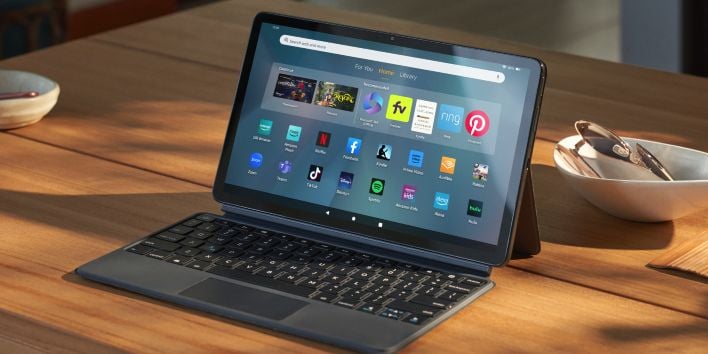Amazon Tablets May Extinguish Fire OS In Major Android Shake-Up To Take On iPad
Since the first Fire tablet launched in 2011, Amazon used a heavily-skinned version of the open-source Android platform called Fire OS, which basically stripped out Google's services to promote its own content and app store. While this strategy has enabled Amazon to sell its tablets at exceptionally low prices, it has come at a cost: limited app selection and a lack of access to popular services like the Google Play Store and YouTube. In turn, this locked-down ecosystem has consistently been a point of contention for users who desire the full functionality of a standard Android device without resorting to unlocking the bootloader

The first of these new Android-first tablets could be released as early as next year and is expected to be a more premium, higher-end device. According to the source, the price tag could hover around $400, which would be nearly double the cost of Amazon's current flagship model, the $230 Fire Max 11 (now going for $174.99). It is possible that Amazon may now be betting on a more feature-rich device to compete with tablets from rivals like Apple and Lenovo.
No doubt, the Kittyhawk tablet represents a gamble for the retail giant. The company has historically favored developing its own software and services in-house, a strategy that led to the commercial failure of the Fire Phone, which relied on the same Fire OS that has powered its tablets and Fire TV devices. However, this new plan acknowledges that its previous approach has its limitations and that the open, compatible Android platform may be the key to future success in the tablet market.
Reuters' report also suggests that while the tablet lineup appears to be taking the full-Android path, the Fire TV platform will transition to its own Linux-based Vega OS instead.

